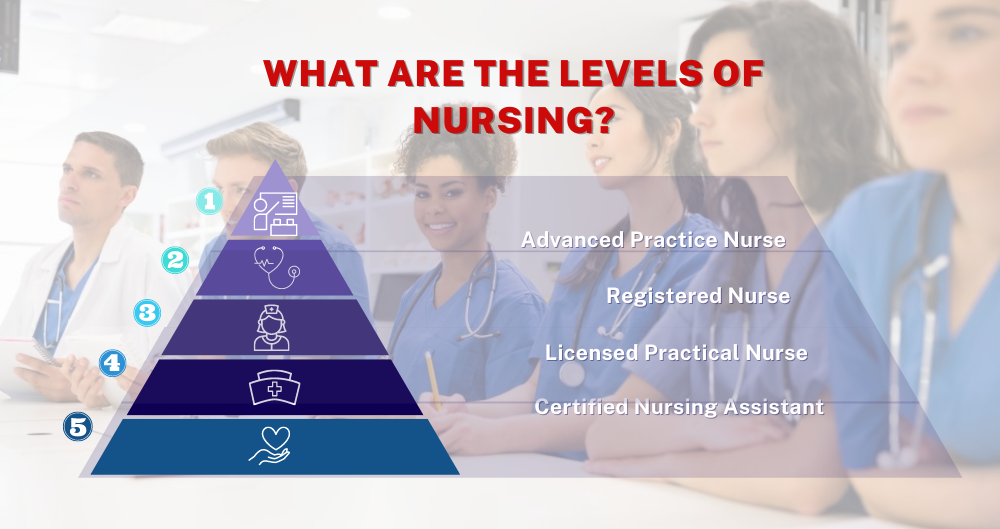Levels of Nursing: Ultimate Guide to the Nursing Career Ladder

Nurses have always been an essential part of the US healthcare system. Opting for a nursing career presents various advantages. You have the freedom to select from different specialties and opportunities for job growth in your career. Though a promising job outlook awaits, nursing isn’t exactly a one-size-fits-all career. Each level of nurses has its own set of educational requirements and focuses that cater to specific interests. If you're curious about the different levels in the nursing hierarchy and how to navigate them, this article will serve as your guide to understanding the nursing ladder.
IV. Advanced Practice Registered Nurse (APRNs)
APRNs are nurses who either earned their MSN or Doctor of Nursing Practice (DNP). You can have MSN and not be an APRN because it depends on the specialization of your MSN.
The American Nurses Association highlights the four types of APRNs: Nurse Anesthetists, Nurse Midwives, Nurse Practitioners, and Clinical Nurse Specialists. They have a median salary of $54 per hour. The job outlook for Nurse Practitioners includes a 40% growth rate by 2031. Meaning there will be 118,600 APRN job openings.
Seeing the various credentials under the nursing list can be intimidating. However, it is an opportunity to explore different careers in the healthcare field. Advancing to higher positions in the nursing hierarchy later will not be an issue. You still have options to shape your career according to your passion and priorities, even after starting to work.
Now that you already know about different nursing professions, it’s time for you to join the autonomy in the workforce. Entering the nursing field can be an incredibly rewarding career choice where you can make a positive impact on the lives of others. Be part of the U.S. healthcare industry backbone today–Apply through Dreambound!

Jessa Guzon is a member of the School Growth and Customer Success Team in Dreambound. She finds joy in assisting both schools and students in reaching their goals by answering their queries and connecting them with the right people. Outside her professional role, Jessa is a happy-go-lucky person with a thirst for adventure.





